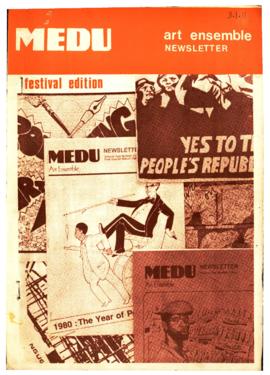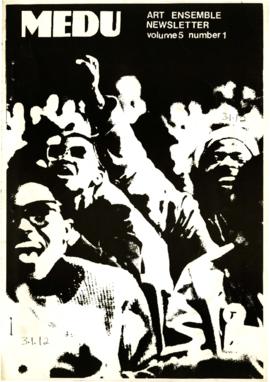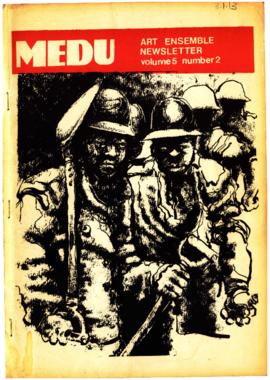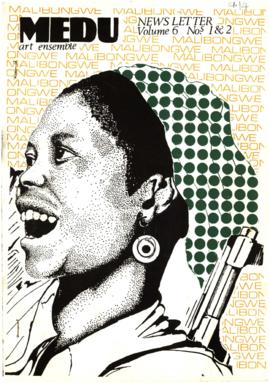- ZA MEDU MEDU-3-3.1-3.1.11
- Subsérie
- 1982
Parte de 3-MEDU NEWSLETTERS
The Medu Festival Edition has been termed as such because it contains some of the best articles, poems and short stories collected in earlier editions. This is Medu's contribution to the Culture and Resistance Festival of 1982. The aim of the festival was to showcase examples of the rich cultural heritage of southern Africa. The display of art and culture aims to challenge the brutal and systemic repression of the cultural life faced by the oppressed in South Africa. This edition contains a range of poetry and short stories each poignantly reflecting on the tumult of the 1980s. The poetry and prose of Mongane Serote, John Donne, Miles Pelo, Mafika Gwala and Mandlenkosi Langa are included. The edition is ended with an interview with Thami Mnyele and graphics from Medu members. Front page graphic a collection of Medu poster arranged by the Medu Art Collective on silkcreen.
Sem título




